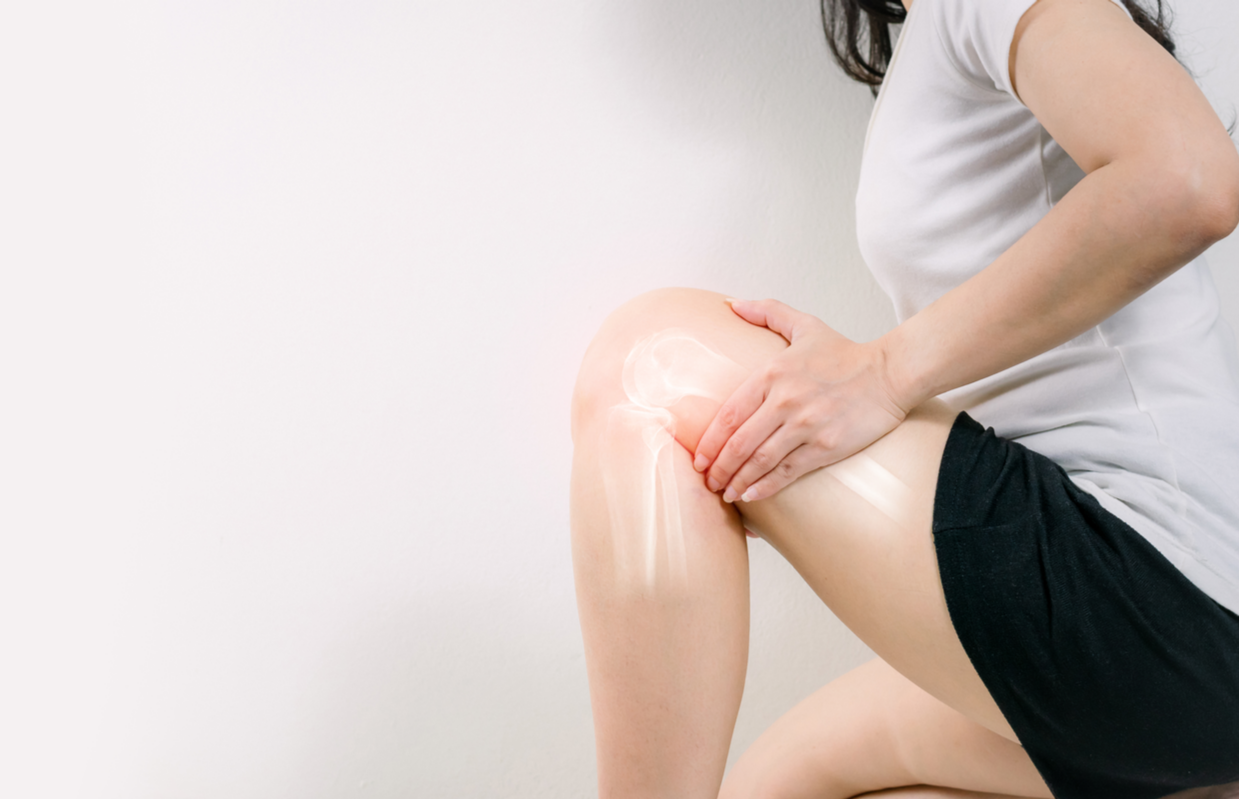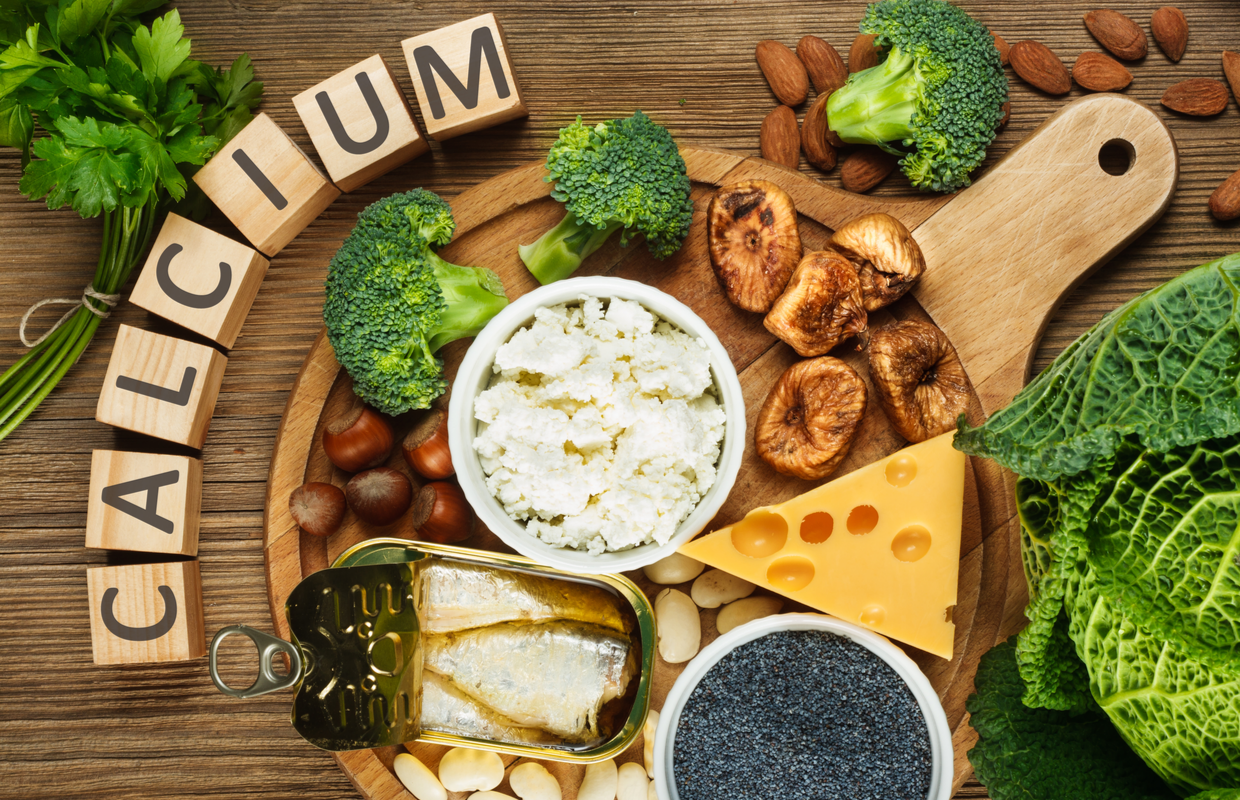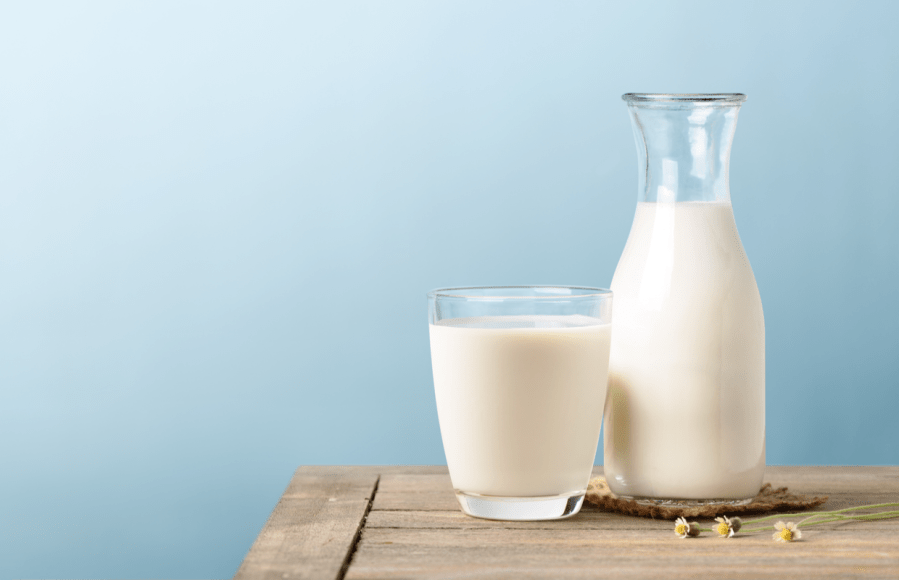We all know that calcium is good for your bones, but with studies suggesting that taking too much of this essential mineral could be bad for your heart, what should you do? Top Santé investigates…
Why do we need calcium?
Calcium is a mineral – in fact, it’s the most prevalent mineral in your body. Right now, you’re storing about 1000-1200mg of it in your system. Ninety nine per cent of this makes up the structure of your bones or teeth, the other one per cent is whizzing around your bloodstream helping control muscle function, cellular signalling, hormone regulation and the health of your circulatory system.
All of these processes are absolutely essential to the healthy functioning of your body, but when it comes to women it’s regarding the state of your bone health where we are mostly calcium-concerned.
And we should be; calcium is essential for building bones when we are in our 20s and 30s and protecting the bones we have after this. ‘Particularly after menopause when changes in hormone levels mean cells called osteoblasts, which lay calcium into the bone, become less active and ones called osteoclasts, which break down calcium in the bones, ramp up activity,’ says dietician Gaynor Bussell.
The result is that from the age of 50, you lose 0.7-2 per cent of your bone mass per year. And the more deficient you are in calcium, the more likely it is that you’ll beat the higher end of this scale.

Is too much calcium bad for your heart?
On the face of it, taking calcium supplements to protect your bones seems like good health insurance, but some studies suggest otherwise. A trial in 2012 found that people taking calcium supplements had twice the risk of heart attack as those not using them, while a second study in 2016 found calcium supplement users were more likely to have the build-up of plaque in their arteries linked to heart attack than non-users.
‘We’re not absolutely sure why this might be, or if it’s definitely linked, but one theory is that taking calcium in one large dose, as you do when you take a supplement, leads to a sudden excess in the bloodstream, which then gets absorbed in the arterial plaques causing them to harden,’ says Gaynor.
However, we do have to state something important here – the studies didn’t prove that calcium supplements lead to heart disease – they just showed a correlation, which is what hit the headlines. Dig a little deeper and more recent studies, which didn’t get the same publicity, have shown no issues.
Inconclusive findings
For example, a 2016 report pooling findings from 31 different studies found no link between calcium supplementation and cardiovascular disease; and the same finding was reported last year in a study that examined more than half a million people here in the UK. Confused? You’re not the only one.
‘We definitely need more trials,’ says Dr Emma Derbyshire from the Health Supplement Information Service. ‘The link is suggested but not proven and there could be other issues such as the age of the trial participants or other elements of their lifestyle that might explain the findings.’
On top of this, in some of the studies the amount of calcium being consumed was higher than the 700mg recommended here in the UK – in the US, for example, supplements are regularly given at 1000mg or more.

How to look after your bones and heart
So, while the researchers clarify things further, what’s the best way for you to protect your heart and your bones? It’s simple… get your calcium from food. Dietary calcium doesn’t have any of the negative effects on your heart that the supplemental form might – in fact, it may do the opposite.
People eating three servings of dairy a day had a lower risk of dying from cardiovascular disease than other folks, according to a recent study from McMaster University in Canada.
Dietary calcium is also better at strengthening the bones than supplemental calcium and it doesn’t take a lot to get positive results – a daily serving of cheese or yogurt is associated with a 10-15 per cent reduction in risk, while drinking just one glass of milk a day reduces the risk of hip fracture by nine per cent.
Mix up your calcium sources
It’s important to mix up your sources of calcium though – a high intake of cow’s milk (more than three glasses a day) has been linked to an increase risk of bone fracture – and in some people it may raise inflammation leading experts to suggest that we focus on fermented sources of dairy such as yogurt, which haven’t been linked to this increase in risk.
There’s also a school of thought that claims dairy is bad for your bones as countries with low intakes of it, such as Japan, also have low levels of osteoporosis. However, they also have radically different diets than Western countries in other ways apart from dairy consumption. Therefore, if you really want to maximise your bone and heart health in the healthiest way, don’t only rely on drinking milk but mix things up.
Best calcium sources in food:
Aim for 700mg of calcium a day for good bone health. Here’s how much you’ll find in 100g/ml of the following:
- Feta cheese– 450mgl
- Canned sardines – 400mgl
- Tahini paste –140mgl
- Natural yogurt– 138mgl
- Skimmed milk– 122mgl
- Fortified soy milk – 120mgl
- Rhubarb –100mgl
- Tofu – 100mgl
- Broccoli – 83mg
On top of that, here are a few extra things you can do to top up your calcium intake through your diet…

4 ways to increase your daily calcium intake
1. Add more bones to your diet
This was the suggestion of a team of US researchers in a paper weighing up the heart vs bone health issue. Their argument was that the soft bones you find in canned fish, whitebait and bone broths contain a form of calcium called calcium hydroxyapatite.
This is the same type your bones are made from and this – plus the fact it’s delivered with supporting nutrients of magnesium, phosphorus, zinc and copper – might mean it’s better for bones than other types of calcium. Calcium hydroxyapatite has also been shown to stimulate the activity of osteoblast cells, which slow in activity as you get older.
2. Watch your salt intake
Sodium is linked to an increased rate of calcium excretion and therefore poorer bone health. Don’t add refined salt when cooking, cut back on naturally salty foods such as pickles, olives and soy sauce, watch levels in processed foods and read the labels of bread and cereals (pick products marked green for sodium). Ideally consume less than 2.4g of sodium (or 6g of salt) a day.
3. Be careful if you’re vegan
Studies examining bone mass have found that vegans have lower bone density than those who eat meat. Yes, dark green leafy vegetables, tofu and some fruits such as rhubarb and figs contain calcium. However, ingredients called oxalic and phytic acid also found in some leafy veg, seeds and pulses, can reduce the amount of calcium absorbed. So, you might want to use a supplement.
‘Take a multivitamin not an individual calcium supplement,’ says Dr Derbyshire. ‘Calcium works better in conjunction with other nutrients including vitamins D and K.’ Also, consume plant-based milks or other foods fortified with calcium as these don’t appear to have the same possible risk as supplements.
4. Don’t stop prescribed pills
The link between supplements and heart health hasn’t been proven – but we know calcium does support bones. ‘If your doctor has put you on supplements because you are at risk of osteoporosis, stay on them,’ says Dr Derbyshire.
Words: Helen Foster | Images: Shutterstock









